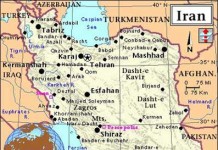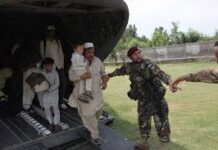Context

The story of the election outcome in Afghanistan has been followed by somewhat similar circumstances in Pakistan, albeit in slow motion. Afghanistan is presently debating and deliberating on the real winner of the the election rounds held in April and June. Going by the media reports that quote Imran Khan, the recent developments in Afghanistan convinced him to rethink his strategy towards alleged fraud in the elections held about a year ago in Pakistan.
The Afghanistan situation remains in flux and despite assurances, the gap between the two candidates persists, not only on election results but also on the power-sharing scheme. In the absence of appropriate political or security transition in Afghanistan, Pakistan will face the brunt. These developments obviously create challenges for the upcoming NATO summit on September 4, which has already been complicated by Russian assertiveness in Ukraine and the growing IS menace in the Middle East.
With one eye on Afghanistan, Pakistan’s other eye would be focused on Modi’s visit to the US, taking place towards the end of September. It would be watching the visit and what it means for Afghanistan. From what it looks like, India’s Look East policy is gaining momentum under Modi and it rhymes well with the American Pivot to Asia.
Other than the flux in the geopolitics, a fundamental societal transformation has presently engulfed the entire Islamic world. Most analyses of the present political crises in Pakistan have stuck to the usual causes and outcomes i.e., the civil-military relations and the role of military before the crisis erupted, and afterwards. This is not to say that the role of Pakistan’s army is inconsequential; it will play a key function in balancing the political and societal rifts.
Fighting Extremism
In each of the extremist inflicted nations of the region, the phrase ‘Unity Government’ is oft being repeated. It has been mentioned in the context of Egypt, Lebanon, Palestine (Hamas and Fatah), Iraq, and most recently in Afghanistan. While each one these countries have their own political, security and economic settings, nonetheless there are important commonalities. There is increasing polarization along ethnic, racial and a tribal line, which is making reaching consensus on broader matters very difficult. The state institutions, where they exist, are either crumbling or serving particular interests. Various angles to when and why did these divides escalate, and what is the future direction, has been covered in previous analyses. The domestic issues have been exacerbated by the war against extremism and now the growing tussles of the emerging and established powers.
The foremost priority for the western policy towards the regions in question is geared towards preventing the hostile states and non-state actors from getting hold of weapons of mass destruction, as witnessed in the case of Iraq, Syria, and Iran. The second priority is to protect allies in the region from the extremists, and the threat they pose to the homeland. NATO is doing so by providing capacity building support to allies and by using its unique smart and special capabilities.
In addition to the above, there is also a realization to prevent China and Russia to take advantage of the situation in these regions. For example, both Egypt and Iraq, including Pakistan, are moving towards acquiring weapons from Russia.
Moreover, from time to time, Russia has threatened to deliver advance air defense systems to Iran, which can have a dramatic influence over western and Israeli military options. Whoever maintains influence in these strategic regions will also maintain control over the critical trade and energy sea-lanes. Any closure of the Suez Canal, choking of the Strait of Hormuz, and instability around Horn of Africa, will have tremendous impact on global trade.
An increasingly fear and threat oriented Western outlook is pushing other parts of the world in a similar predicament. Then there is the issue of what gets defined as a problem and what are the possible solutions. The best way to tackle extremism may be bottom-up not top-down. Over emphasis on security affairs is taking place at the cost of diminishing economic and trade prospects, which in turn is making the security matters even worse. In other words, it’s increasingly a circular dilemma leading to a self-fulfilling prophecy.
National Governments and Power Sharing
The pressures from the tussles of the emerging and established powers, plus a singular western focus of countering extremism and in absence of appropriate policy changes, are proving too much to grapple with for many nations. What just happened in Gaza is the case in point. Political and ethnic polarization is growing in Pakistan as well and conservatism increasing. This change in ground dynamics makes the outlook threatening to the West, and prevents it from accepting bottom-up methods. This was demonstrated recently in Egypt. The best way to test the bottom up approach is to let it evolve, and fail, if that is the case.
And this is not just Middle East the American system of governance itself is going through a major upheaval. So much so that President Obama has to increasingly rely on executive powers to move things through, often bypassing the legislative body. In an increasingly tight fiscal situation and times of growing uncertainty, where the political fissures are so large and ideological underpinnings so deep, the winner takes all approach no longer works. The next American election could prove to be a watershed moment.
The need of the day is more power sharing and national unity style of governments – to deal with the present fast moving reality. How to formulate these and make them work remains a work in progress. One thing is for sure; the future style of governance would have to be less political and hierarchical, self- governing (technology), and heavy on deliverance, otherwise they would risk quick repudiation.
Systems and processes are made to deliver the intended services and goods. If they do not, move too slowly, tilt too much in the favor of one, they need to be fixed and adjusted to the reality at hand. Relying on a system to work when it was designed for normal circumstances and reality, is inviting disaster. Change is the name of the game, status quo will not and cannot be made to last.



